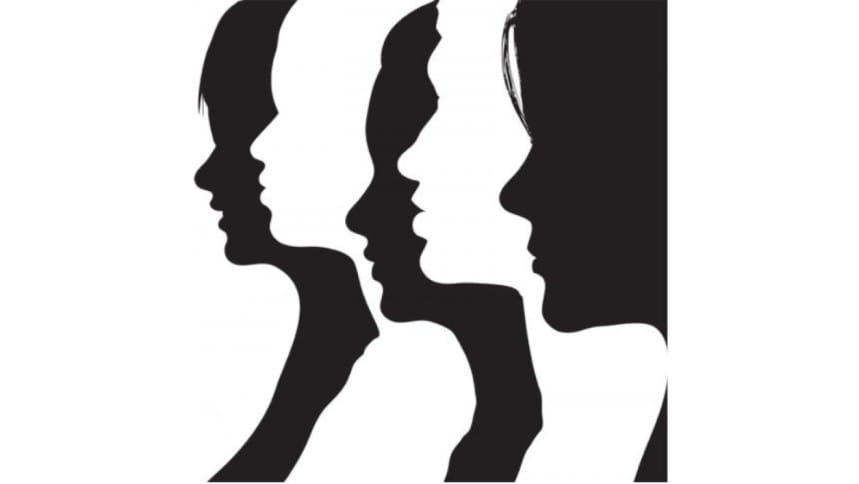Countries can’t move forward if half of citizens are held back

If you were to compete in a running race, would you tie, shorten, or burden one of your legs? No, of course not. You would surely lose. Economies will also lose the development race if they don't allow their women, virtually half their population, have the same rights as men do.
Gender equality is not only good for women, but it is also good for the society and the economy: it makes them more dynamic and more resilient. Equal treatment of women under the law is associated with larger numbers of women entering and remaining in the labour force, rising to managerial positions, and becoming intellectual and political leaders.
The strength of women's participation in all spheres of social, economic, and political life is invaluable; and it stems from women's enjoying equal legal rights. How much progress has the world made in addressing gender inequality under the law?
The State of Women's Legal Rights
Women, Business and the Law 2023 finds that the global Women, Business and the Law index average is 77.1 out of 100. Only 14 countries, all in the OECD, score 100—which means that women are on an equal legal standing with men across all eight areas measured: mobility, workplace, pay, marriage, parenthood, entrepreneurship, assets, and pensions. This means that 2.4 billion women of working age do not have equal economic opportunity and 176 economies maintain legal barriers that prevent their full economic participation. Countries cannot move forward if half of their citizens are held back.
Today, equality of economic opportunity for women is highest in OECD high-income economies, where the average score on the Women, Business and the Law index is 95.3 points, and lowest in the Middle East and North Africa region, where the average score is 53.2 points.
Gender-related reforms in 2022
In 2022, only 34 gender-related legal reforms were recorded across 18 economies—the lowest number since 2001. More than half of all reforms in the past year were implemented on the African continent with Benin, the Republic of Congo, Côte d'Ivoire, Gabon, Malawi, Senegal, and Uganda introducing 18 reforms. As a result, two economies from the Sub-Saharan Africa region, Côte d'Ivoire and Gabon, score above 90 on the Women, Business and the Law index, and the averages score for the Sub-Saharan Africa region has surpassed the score of the East Asia and Pacific region.
Other countries that reformed this year are Bahrain, China, Costa Rica, Indonesia, Iraq, Jamaica, Kazakhstan, Malta, Mongolia, the Netherlands, and Pakistan.
Most reforms focused on increasing paid leave for parents and fathers, removing restrictions on women's work, and mandating equal pay: Costa Rica, China, Malawi, Malta, Mongolia and the Netherlands mandated paid parental or paternity leave; Senegal amended its law to prohibit the dismissal of pregnant women; Costa Rica, Côte d'Ivoire, Gabon, Kazakhstan, and Senegal removed restrictions on women's work; and Gabon and Mongolia introduced provisions mandating equal remuneration for work of equal value.
Global progress toward gender equality in the last five decades
Women, Business and the Law 2023 documents global progress toward legal gender equality since 1970. There is growing evidence showing how countries decide to remove legal barriers for women. A country's institutional landscape, stable economy and higher human capital, create the foundation for the reform process.
The activism of women's groups and multistakeholder coalitions help to create the momentum. Research and data are important tools for making the case for reforms. International legal mandates and technical assistance from international development partners offer key support for reformers seeking to identify good practices. These factors encourage and support the enactment of successful reforms.
Five main takeaways outline how, where, and how fast laws have changed since 1970:
Since 1970, the global average Women, Business and the Law score has improved by about two-thirds, rising from 45.8 to 77.1 points. The first decade of this century saw strong gains toward legal gender equality but since 2010, the reform momentum has slowed.
Today, just 14 economies—all high income—have laws giving women the same rights as men, and progress has been uneven across regions and over time. At the recent pace of reform, it will take at least another 50 years to reach 100.
Progress across the areas measured has also been uneven, with most reforms in the areas of Workplace and Parenthood. Reforms have focused on addressing domestic violence, prohibiting gender discrimination in employment, and protecting against sexual harassment.
Economies with historically larger legal gender gaps have been catching up, especially since 2000. Economies with the highest growth rates in the Women, Business and the Law score include Bahrain, Botswana, the Democratic Republic of Congo, Indonesia, São Tomé and Príncipe, Saudi Arabia, South Africa, Togo, and the United Arab Emirates.
The catch-up effect has been happening across all areas covered by Women, Business and the Law, but the pace of progress has been uneven. The catch-up effect has been strongest in the laws affecting the workplace, followed by those affecting parenthood, entrepreneurship, and pay.
Governments cannot afford to sideline half of their population. Denying equal rights to women across much of the world not only is unfair to women, but also is a barrier to countries' ability to promote green, resilient, and inclusive development. Women cannot afford to wait any longer to reach gender equality. Neither can the global economy.
Norman Loayza is director of the Global Indicators Group of the World Bank. Tea Trumbic is the programme manager of women, business and the law.

 For all latest news, follow The Daily Star's Google News channel.
For all latest news, follow The Daily Star's Google News channel. 








Comments